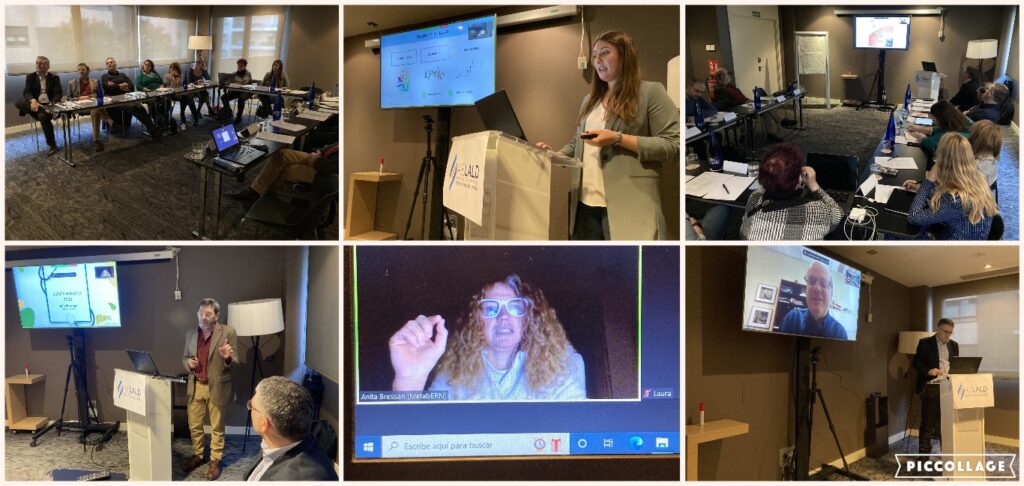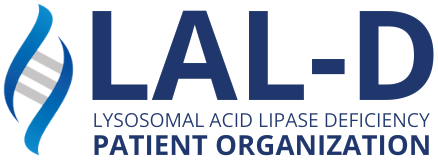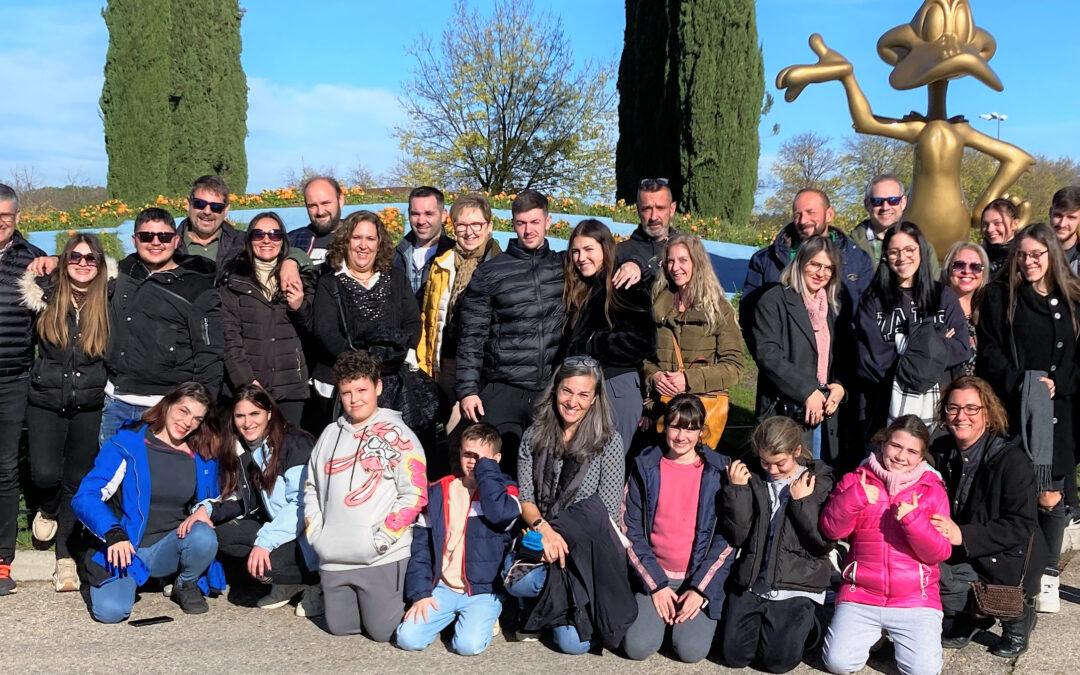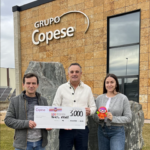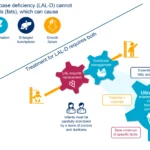This disease, considered ultra-rare and affecting only 45 people in Spain, is also known as Wolman’s Disease or Cholesterol Ester Storage Disease.
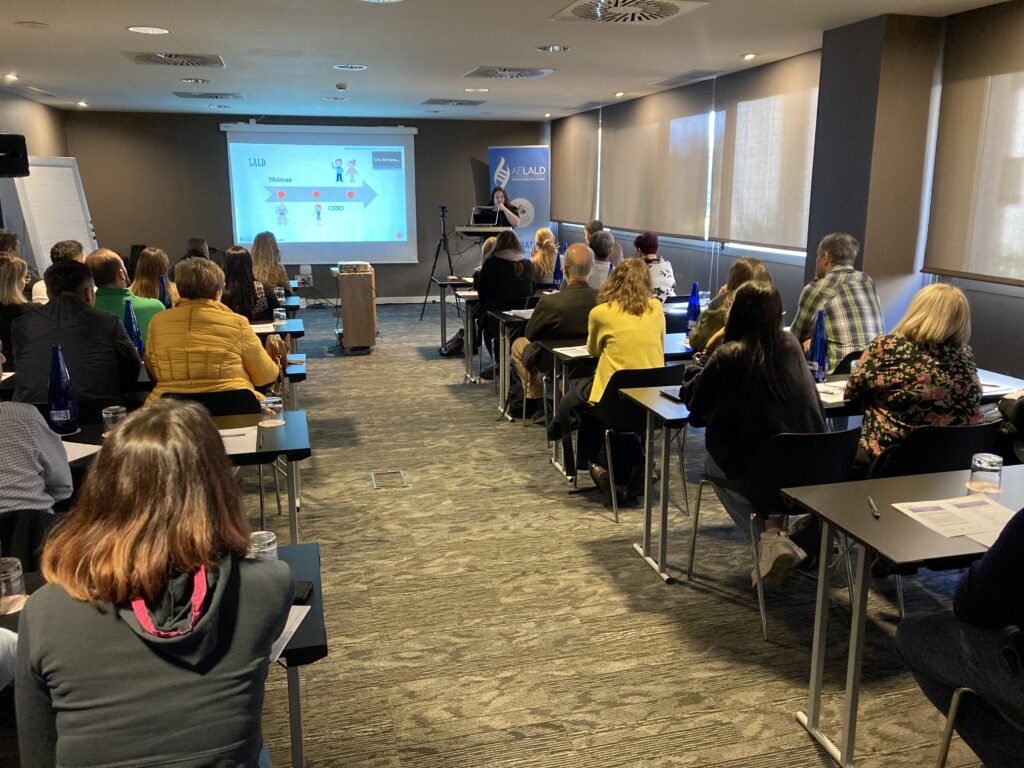
Lysosomal Acid Lipase Deficiency (LAL-D) is an autosomal recessive metabolic storage disease resulting from the accumulation of cholesterol esters and triglycerides in the cellular lysosome. This disease is characterized by multi-organ involvement, including the liver, spleen, cardiovascular system, and, to some extent, the gastrointestinal system. LAL-D can be differentiated into two phenotypes. One is Wolman disease, which affects only infants and is fatal; death usually occurs within the first 12 months of life. Cholesterol Ester Storage Disease, the other phenotypic expression, manifests less rapidly and affects both children and adults. Unfortunately, once symptoms develop, a significant percentage of patients may experience progression from liver fibrosis to cirrhosis or the need for a liver transplant within 3 years of symptom onset.
The frequency of the disease is still completely unknown. Studies have reported various prevalence estimates, ranging from 1 in 130,000 to 1 in 300,000.
The Spanish Association for Lysosomal Acid Lipase Deficiency (AELALD) was founded in January 2015 by the parents of a 3-year-old girl diagnosed with this disease. The parents felt the need to share with other families the despair and uncertainty of receiving a diagnosis of a devastating disease affecting their child. The Association’s goals are to care for, unite, and provide guidance to those affected and their families, to spread the word to help diagnose new patients, and to promote research into the disease.
It is the only association specifically for this disease in Europe. Last Saturday, November 25th and 26th, 2022, the IV Meeting of Experts and Affected Families was held in Alcalá de Henares (Madrid). This event featured specialists in the disease, such as Dr. Maria Mercadal, Associate Physician in Pediatrics, Pediatric Hepatology and Liver Transplant Unit at Vall d’Hebron Hospital in Barcelona. Mercadal discussed the key aspects of lysosomal acid lipase deficiency in the transition to adulthood.
Júlia Pijuan and Cèlia Rodríguez, both Dietitians and Nutritionists at the Vascular Medicine and Metabolism Unit (UVASMET) and the Lipid and Arteriosclerosis Research Unit (URLA) at Sant Joan de Reus Hospital, spoke to us about healthy nutrition for LAL-D and the “LAL-D Your Way” website, which helps affected patients manage the disease from a nutritional perspective.
Félix de la Fuente, Medical Science Liaison at Alexion, explained the ALEXION International Registry, where physicians enter patient data in a completely anonymous manner.
Francesc Cayuela, an IT consultant linked to hospitals, and Andrea Lisbona explained the Patient 73 Project, which aims to be a platform for patients, families, healthcare professionals, and researchers internationally.
Under the title “Who is ELPA?”, Julio Burman, Vice President of ELPA, explained to the attendees the role of this organization, which unites European liver disease patient associations.
To conclude the day, Eduardo López, president of AELALD, reviewed the activities AELALD has been carrying out since the last family meeting and emphasized three topics in which he is involved and which are very important to the association’s objectives:
– Eurordis New Born Screening, as a strategy for the early diagnosis of the disease
– Our incorporation into MetabERN, the European network established to facilitate access to the best available care and meet the needs of all patients affected by any rare inherited metabolic disease and their families, crossing the borders of European countries
– The gene therapy research that Dr. Martin is conducting at Nationwide Children’s Hospital in Ohio (USA).
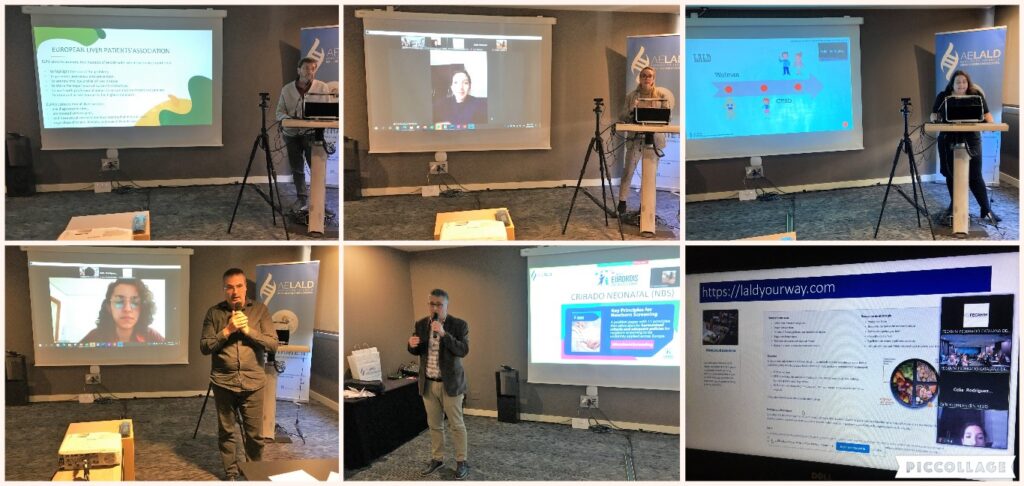
For Eduardo López, the importance of this conference lay in the opportunity to connect all affected patients and their families with each other, with the goal of creating a close-knit and coordinated group to further disseminate knowledge about this serious disease and, of course, to seek sufficient financial support to initiate lines of research that will lead to a cure for the disease in the coming years.
The current and only available pharmacological treatment delays the progression of the disease in those affected, so Eduardo believes it is very important to continue researching this pathology to learn more about it and, in the future, find a cure.
LAL-D EXPERT COMMITTEE
In parallel with this meeting, the day before the IV Family Meeting, a meeting of experts on the disease, which is held regularly, was held, bringing together healthcare professionals from various disciplines: medicine, biology, nutrition, computer science, etc.
Dr. Paul Martin, Principal Investigator at the Center for Gene Therapy at The Research Institute at Nationwide Children’s Hospital in Ohio (USA), presented his team’s publication on gene therapy research:
Anita Bressan, Digital Health Manager at MetabERN, explains the Clinical Patient Management System (CPMS), a GDPR-compliant telemedicine platform where physicians in the European Union can share complex cases in a completely anonymous manner with the goal of obtaining a diagnosis quickly and securely.
MetabERN has created several videos about the CPMS platform to better understand this tool:
- Reasons to Love the CPMS
- MetabERN and the General Data Protection Regulation
- Patients’ Consent and Other Doctors’ Responsibilities in the CPMS
- CPMS Success Stories – University Hospital Santiago de Compostela
Dr. Maria Mercadal commented that the Rare Liver and Child Transplant Group at Vall d’Hebron Hospital in Barcelona is using this tool and confirmed its usefulness.
As he did at the IV Meeting of LAL-D Families, Julio Burman explained ELPA, the European Liver Patients’ Association.
Irene Serrano is a predoctoral researcher at the Spanish Foundation for the Study and Treatment of Gaucher Disease and Other Lysosomal Diseases (FEETEG) and gave two presentations on diagnosis and laboratory follow-up in LAL-D and the dysfunction of LAL activity in other lysosomal diseases.
Dr. Pilar Giraldo, head of the Hematology and Hemotherapy Department at the Miguel Servet University Hospital in Zaragoza, presented a publication published in October by her team entitled “Recommendations for Overcoming Challenges in the Diagnosis of Lysosomal Acid Lipase Deficiency,” a thorough review of a total of 169 articles by three independent researchers.
She also presented the journal en-LISOS, dedicated to Lysosomal Diseases and published entirely in Spanish.
AELALD is part of its edition and collaborated in its first number. A has also been published second number.
Dr. Emili Ros, emeritus researcher on cardiovascular risk, nutrition, and aging, reviewed the LALD, which is part of the Dyslipidemia Registry of the Spanish Society of Arteriosclerosis.
Dr. Núria Plana, attending physician in the Vascular Medicine and Metabolism Service at Sant Joan Hospital in Reus (Tarragona), assessed vascular risk in a patient with LALD using advanced lipoprotein profiling.
Francesc Cayuela, president of the Catalan Federation of Minority Diseases (FECAMM), presented the current status of the Artificial Intelligence applied to the diagnosis of LAL-D project.
